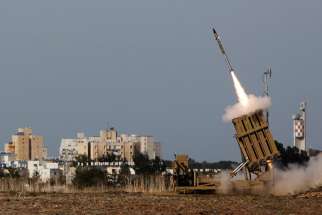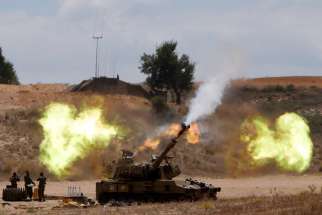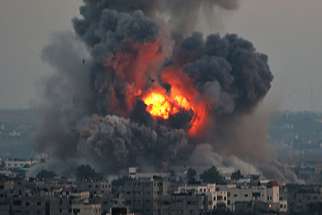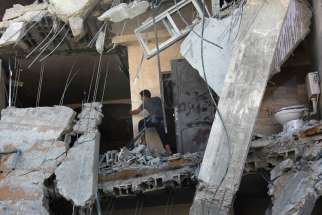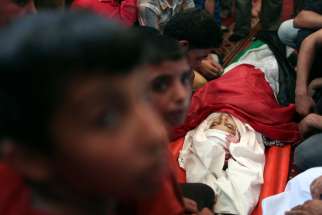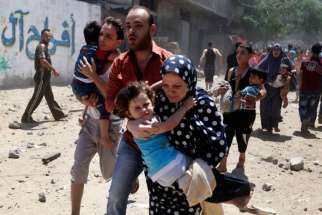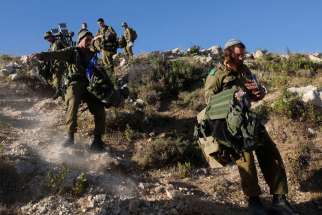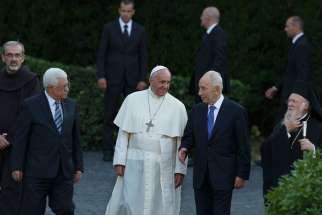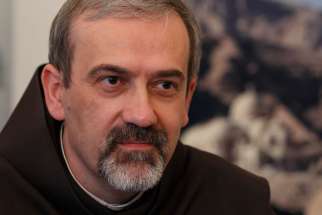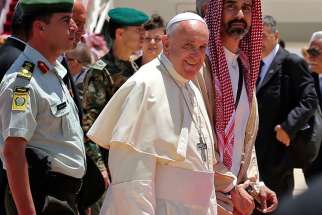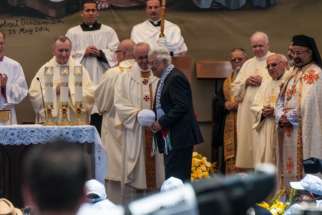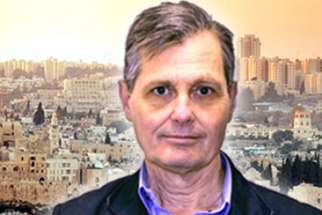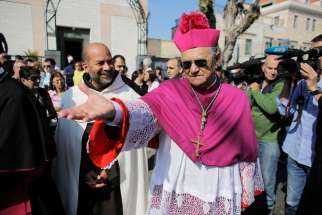JERUSALEM - With most international airlines cancelling their flights into Israel's Ben Gurion airport after several Hamas missiles were launched toward the area July 22, Anton Mousallam has only three words on his mind: cancellation, cancellation, cancellation.
JERUSALEM - The head of Caritas in Jerusalem said he would launch an international appeal to help with the Gaza Strip and would not wait until the end of Israeli-Hamas hostilities, as he had done in the past.
While the violence escalates in Israel and Gaza, a movement is taking hold that unites Jews, Muslims and others in a campaign for peace.
Gaza's Christians work together to stay safe
JERUSALEM - Members of the tiny Christian community in the Gaza Strip have been keeping tabs on each other and lending a helping hand to keep each other safe during Israeli airstrikes throughout the region, but nowhere in the territory is really safe, said a priest at the territory's only Catholic parish.
Prayer for peace is never in vain, says Pope
VATICAN CITY - Praying for peace is never a useless exercise — it keeps evil at bay and helps people not give in to violence, Pope Francis said.
JERUSALEM - Catholic leaders in the Holy Land called for an end to the cycle of violence and criticized Israel's occupation of Palestinian territories and its collective punishment of Palestinians.
JERUSALEM - The chancellor of the Latin Patriarchate asked anyone with information about the kidnapping of three Israeli teens to come forward and help return the youths to their families. At the same time, he called on the Israeli army to keep its reaction and its search methods proportionate.
VATICAN CITY - Praying for peace in the Holy Land alongside leaders of long-antagonistic nations, Pope Francis called on God to act where human efforts had failed, to end what he described as violence inspired by the devil.
VATICAN CITY - Pope Francis' June 8 meeting with the Israeli and Palestinian presidents will be a religious, not a political, occasion and should not raise hopes for immediate resumption of peace talks between the two nations, said the principal co-ordinator of the gathering.
The Rolling Stones will begin their first concert in Israel 45 minutes later than originally scheduled to accommodate religious Jewish fans.
Pope invites Israel, Palestine leaders to Vatican
BETHLEHEM - Pope Francis has offered his home, the Vatican, to Israeli President Shimon Perez and Palestinian President Mahmoud Abbas to pray together for peace.
Israel, Palestine leaders accept invite to Vatican
Israeli President Shimon Peres and Palestinian President Mahmoud Abbas are both on record accepting the invitation from Pope Francis to come and pray for peace at the Vatican.
JERUSALEM - Ahead of Pope Francis’ visit, Jewish religious and nationalist groups plan to demonstrate May 22 to demand that the Israeli government not cede sovereignty or control of the Cenacle, traditionally considered the site of Jesus’ Last Supper.
Pope Francis' pilgrimage for unity
Catholics sometimes forget what the Pope's job is. It's not hard to mistake the Masses, meetings, audiences, addresses, encyclicals, photo opportunities and tours of St. Peter's Square in the popemobile for the Pope's job.
JERUSALEM - The Latin patriarch of Jerusalem called a continuing wave of vandalism against Christian, Muslim and Druze properties a "blight on Israeli democracy" and urged authorities to step up prosecution against the perpetrators.


